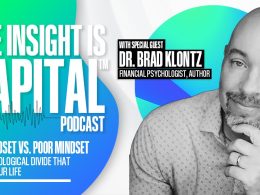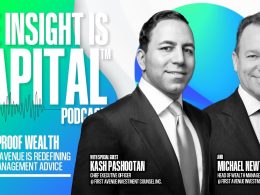Data-Gathering Techniques for Financial Advisors
by Patrick Sarne, Commonwealth Financial Network
In Wealth Management: The New Business Model for Financial Advisors, Russ Alan Prince and Hannah Shaw Grove suggest that the wealth management model is the wave of the future. They also help advisors determine if this holistic life-planning approach is right for them and the best way to adopt the approach. But what really struck me when reading this book was the authors' description of how to gather client information.
As you know, traditional data-gathering techniques for financial advisors involve asking clients or prospects to bring in account statements, insurance policies, and the like. But Prince and Grove encourage advisors to take this process a step further by seeing themselves as valued consultants who want to build client relationships. How? By quantifying this consultative process into six areas, including artful ways to delve into them.
Begin by asking questions that focus on client objectives:
- What are your personal and professional goals?
- What do you want (or feel obligated) to do for your spouse, children, other family members, friends, society, and the world at large?
The answers to these questions are the foundation on which your recommendations will stand. For example, you might uncover the client's timeline for retirement and his or her desired lifestyle in retirement. Needs for college funding or elder care might also be discovered. You can then enter this information into your preferred financial planning software.
The questions you ask in this area get a bit more personal:
- Which family relationships (e.g., spouse, children, siblings, parents) are most important to you?
- What is your religious orientation? How devout are you?
These questions may lead to a discussion on insurance needs, desires to support philanthropic causes, or a need for a family or charitable trust.
Here, you want to dig into assets and other investment-related matters:
- How are your assets structured? In whose name are they registered (e.g., yours, your spouse's, a corporation's)?
- How do you make money? How is that likely to change in the next three years?
Taxes can have a significant impact on your client's likelihood of achieving his or her goals. Tax liability can be minimized with a proper account structure. Plus, changes in the client's current and future propensity to save or spend play a vital role in his or her financial situation. Your ability to incorporate these considerations will increase your chances for success in helping your clients reach their goals.
You'll also want to learn more about existing professional relationships:
- Do you work with other advisors? Who are they and what are their roles?
- How frequently have you switched advisors?
Based on the client's answers, you might discover opportunities to expand your own centers of influence and potentially establish fee-sharing arrangements with these individuals. Knowing why clients have decided to join or leave an advisor may also help you avoid a relationship that has more burden than benefit.
Administrative details shouldn't be overlooked. Be sure you ask:
It's vital to understand your clients' expectations of the relationship to see how they complement your service and fee schedules. It's also an opportunity for you to offer additional benefits (identity protection, credit watch, etc.).
Finally, to truly know your clients, you must learn about their day-to-day lives:
- What are your favorite activities, TV programs, movies, and sports teams? Do you have any pets or hobbies? Do you travel often?
- Are health and fitness important to you? If so, what's your regimen?
This personal connection will help solidify the bond between you and the client. It may also give you ideas for marketing opportunities or client appreciation events. Can your client's interests lead you to define a niche market? Will your client help generate referrals?
By understanding your clients' explicit and implicit needs, you'll be able to:
- Provide an extensive range of financial products and services
- Develop a deeper emotional connection with them
- Differentiate yourself from other financial services providers by showing how much more beneficial their relationship can be with you
- Retain clients when the markets are volatile
- Position your clients for long-term success
To be sure, data-gathering techniques for financial advisors need to elicit information from clients. At the same time, however, these techniques should help you look beyond the numbers and figures. Just think of the connections you can foster when clients open up their lives to you, rather than just their checkbooks!
What other areas do your data-gathering techniques focus on? Please share your thoughts with us below!
Editor's Note: This post was originally published in February 2015, but we've updated it to bring you more relevant and timely information.
Commonwealth Financial Network is the nation’s largest privately held independent broker/dealer-RIA. This post originally appeared on Commonwealth Independent Advisor, the firm’s corporate blog.
Copyright © Commonwealth Financial Network
















